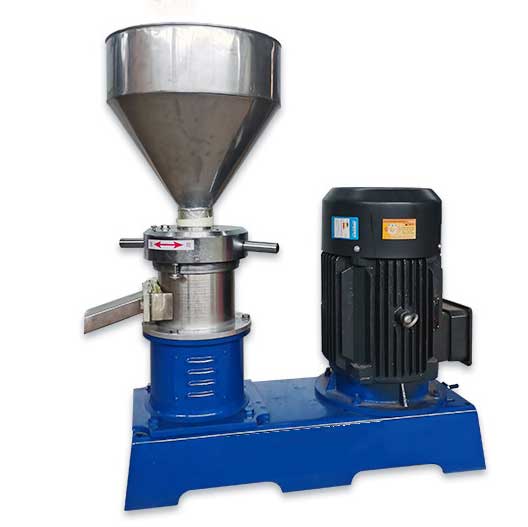Colloid mill
A colloid mill is a versatile machine used for reducing the particle size of a solid in suspension in a liquid, or reducing the droplet size in an emulsion. It works by applying high shear forces to the fluid, causing the particles or droplets to break down. While the name suggests it’s limited to “colloidal” materials, it’s capable of processing a wide range of substances, including fluids, semi-fluids, creams, and even soft solids with some moisture or oil content. This makes it an essential piece of equipment in many modern industrial processes.

